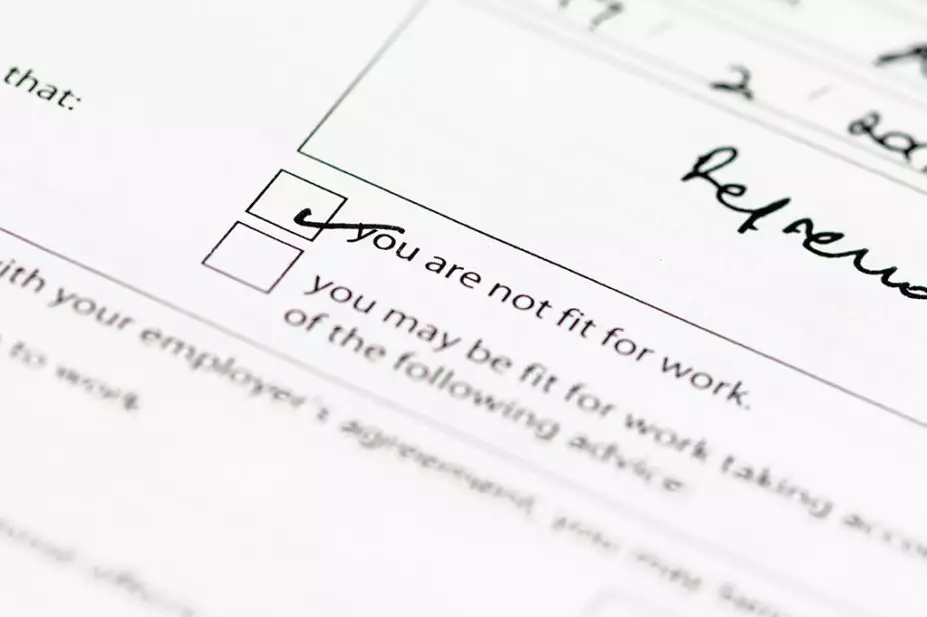
Stephen Barnes/Medical / Alamy Stock Photo
New legislation to allow a wider range of healthcare professionals, including pharmacists, to certify so-called ‘fit notes’ will be laid before UK Parliament on 10 June 2022.
From 1 July 2022, nurses, occupational therapists, pharmacists, and physiotherapists in England, Scotland and Wales will all be able to legally certify statements of fitness for work — something that at present only medical doctors can do.
The government said the change will ease the pressure on GP practices and “empower better conversations about work and health between employers and staff” by making it easier to get this advice certified by the most relevant healthcare professional.
However, it is not yet clear how these legal powers will be introduced in practice, the conditions of their use or whether all pharmacists — including those not based in GP practices — will be able to certify fit notes from July.
The extension of fit note certification follows changes made in April 2022 that allow for fit notes to be certified and issued digitally.
Chloe Smith, minister for disabled people, health and work, said: “The extension of fit note certification is fantastic news for patients, making it easier for them to get the support and advice they need from the right place, ensuring where possible that they are able to remain in work.
“These latest fit note changes recognise the valuable role other professions play in helping manage people’s health and I hope this will also help reduce unnecessary bureaucracy for doctors and general practice more widely.”
Maria Caulfield, pharmacy minister, said: “Extending powers to provide fit notes to other healthcare professions will relieve further pressures on GPs and is another step towards helping to deliver an extra 50 million appointments in general practice a year by 2024.
“This is just another way in which we’re supporting GPs in primary care, and we remain on track to deliver 26,000 more primary care staff by 2024 to help improve patient access to appointments.”
President of the Royal Pharmaceutical Society (RPS) Claire Anderson said: “Pharmacists are taking on increasingly clinical roles, and the provision of a fit note may be an appropriate part of a consultation with a patient. However, we have a number of concerns that must be addressed to enable pharmacists to provide fit notes.
“First, although pharmacists working in general practices have access to medical records, this is not the case for community pharmacists: it is essential that this is changed to ensure pharmacists have access to all the information required to be able to safely issue a fit note.
“Second, pharmacists already have a significant workload so additional roles must be properly planned for and funded services developed.
“Finally, it is essential that the public is given clear information about where fit notes can be obtained from and not misled that they can be provided by all pharmacists.”
In a statement, a spokesperson from Community Pharmacy Scotland said that the legislation does not mean that all pharmacists will issue fit notes to patients, and stressed that “there are certainly no current plans to offer a service like this through high street pharmacies in Scotland”.
CPS policy and development officer Adam Osprey said: “CPS would stress that patients and pharmacists should continue to follow current procedures that are in place regarding the granting and extending of fit notes, until such time as their local NHS board announces a change to this”.
1 comment
You must be logged in to post a comment.



There is very high pressure everywhere in the primary care system so people need to move away from the familiar lines, 'to reduce GP pressure', or to 'support GPs'. This is about changing systems so eveyone can serve citizens efficiently when they are providing primary care services.